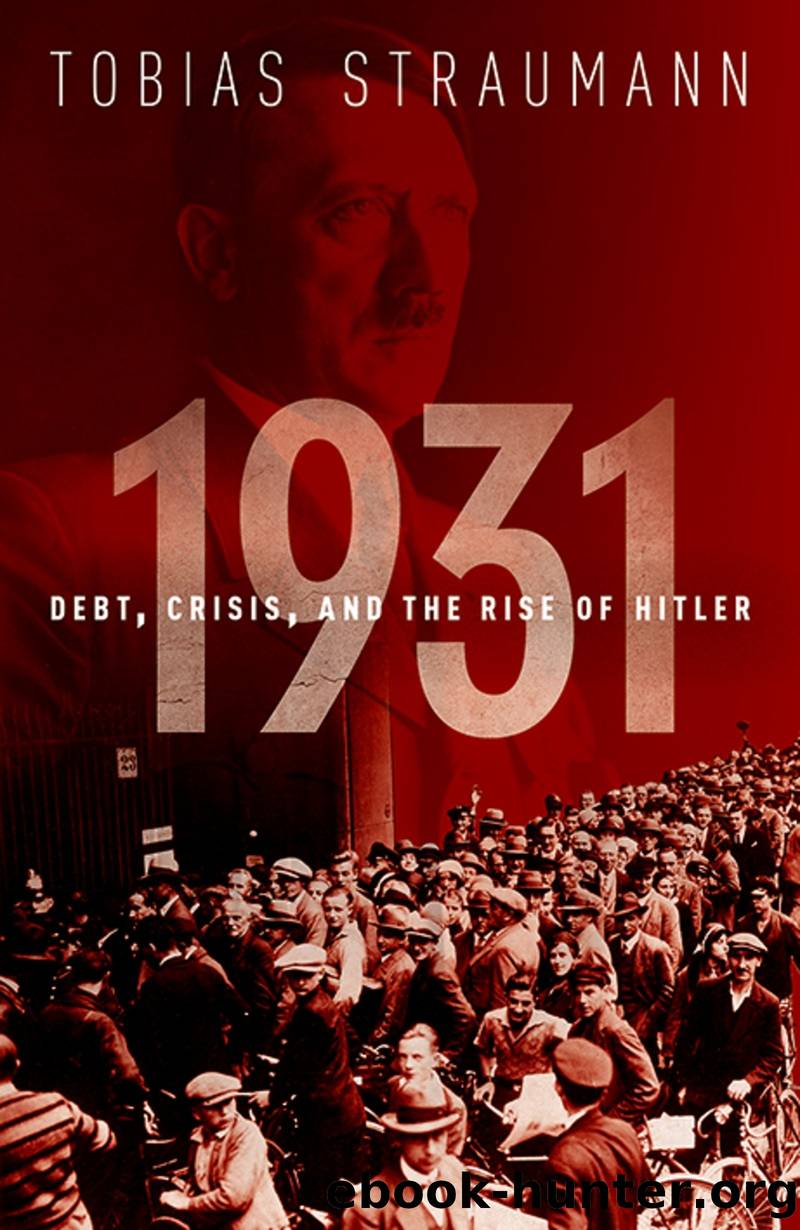1931 by Tobias Straumann

Author:Tobias Straumann [Straumann, Tobias]
Language: eng
Format: epub
ISBN: 9780192548139
Publisher: OUP Oxford
Published: 2018-12-31T00:00:00+00:00
part iii
Despair
7
squaring the circle
The period of indecision came to a close on Friday, 6 March. Late in the afternoon, the Chancellor was informed by agitated senior officials of the Finance Ministry that the Reichâs revenues were deteriorating rapidly. âBrutal measures will be unavoidableâ, Finance Minister Dietrich warned. Reichsbank President Luther, who also attended the emergency meeting, confirmed the depressing outlook. Brüning listened attentively, explained that he understood their concerns, and then drew a far-reaching conclusion: âThe German people will not tolerate another compression in our finances without decisive steps on reparations. I am therefore determined to act.â1
Luther and Hans Schäffer, State Secretary of the Finance Ministry, were aghast. They were convinced that questioning Germanyâs obligation to fulfil the Young Plan would immediately trigger a financial crisis. Investors would begin to doubt the solvency of the Reich, provoking massive capital flight. By contrast, Hermann Pünder, ever the loyal State Secretary of the Chancellery, embraced the new policy wholeheartedly. Three days after the historic meeting he wrote in his diary: âContinuing to cut back, without reform of reparations, is breaking the spirit of our impoverished people.â2
Who was right? Would a more aggressive foreign policy improve the domestic standing of the government? Was there a way to achieve a revision of the Young Plan without provoking a major diplomatic and financial crisis?
The Chancellor soon received a first answer to these questions. On 16 March, Foreign Minister Curtius informed the cabinet that he had been negotiating secretly with Austria with a view to establishing a customs union. Two days later, the cabinet supported the idea unanimously. Curtius knew that Brüning saw a more muscular foreign policy as a way to counter the governmentâs low approval rate. âThis step promises to have a de-stressing effect on domestic politicsâ, Curtius explained with great confidence. âWe may even get a united front of the Social Democrats and the National Socialists around this issue.â The economic effects of the customs union were considered secondary by Curtius. Austria was too small a market to fuel German exports in a decisive way.3
However, the gambit failed completely. When the French Foreign Ministry was officially notified three days later, the reaction could not have been more hostile. âOur plan has aroused great dismay and indignationâ, the German ambassador cabled from Paris to Berlin. French Foreign Minister Briand, usually good-tempered and measured in tone, shouted: âThis is a preparation for the Anschluss!â Soon the German term was in everybodyâs mouth, and the name Curtius, until recently hardly known to anybody outside the Reich, became a symbol for arrogance.4
The pro-government newspaper Le Temps went even further than Briand. It considered the plan to be âan attempt to realize the old project of âMittel-Europaâ by which Germany would have sought to establish her domination if she had emerged from the war victoriousâ. In the parliamentary debate that followed a few days later, Briand once more lashed out against the German government. âThe Austro-German agreement obviously marks the moment to call a halt in our relations with Germanyâ, he thundered.
Download
This site does not store any files on its server. We only index and link to content provided by other sites. Please contact the content providers to delete copyright contents if any and email us, we'll remove relevant links or contents immediately.
Blood and Oil by Bradley Hope(1247)
Daniel Holmes: A Memoir From Malta's Prison: From a cage, on a rock, in a puddle... by Daniel Holmes(1117)
Ambition and Desire: The Dangerous Life of Josephine Bonaparte by Kate Williams(1084)
Wandering in Strange Lands by Morgan Jerkins(1014)
It Was All a Lie by Stuart Stevens;(940)
What Really Happened: The Death of Hitler by Robert J. Hutchinson(868)
London in the Twentieth Century by Jerry White(845)
Time of the Magicians by Wolfram Eilenberger(842)
The First Conspiracy by Brad Meltzer & Josh Mensch(811)
Twilight of the Gods by Ian W. Toll(811)
A Woman by Sibilla Aleramo(796)
The Japanese by Christopher Harding(796)
Lenin: A Biography by Robert Service(779)
The Devil You Know by Charles M. Blow(777)
Reading for Life by Philip Davis(774)
Cleopatra by Alberto Angela(764)
Twelve Caesars by Mary Beard(764)
1965--The Most Revolutionary Year in Music by Andrew Grant Jackson(714)
The Life of William Faulkner by Carl Rollyson(713)
